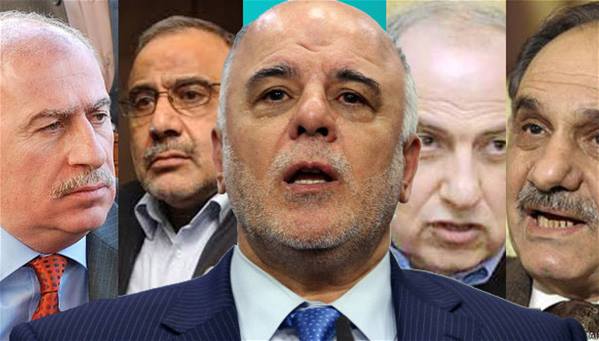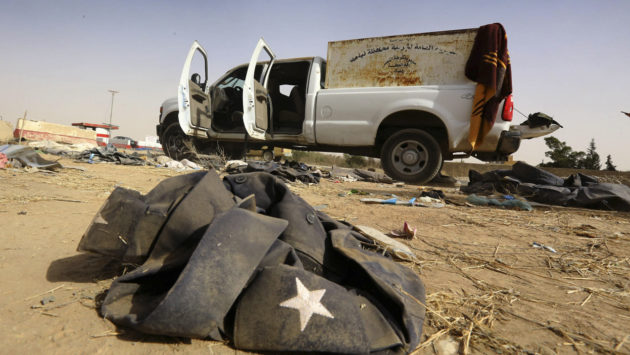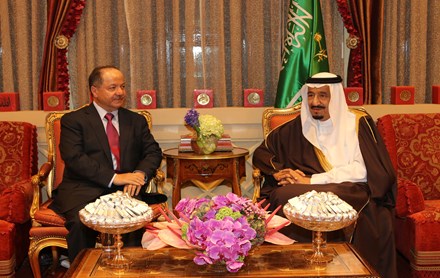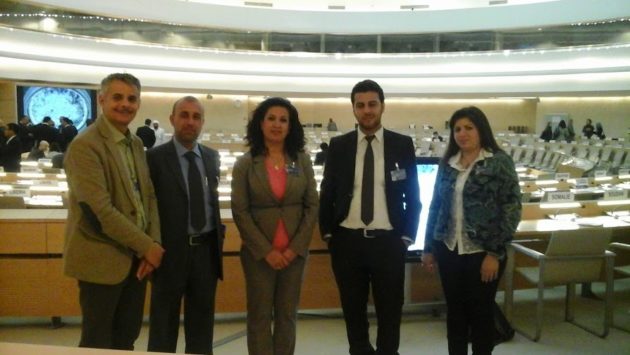Assessing Iraq’s New Government: looking for concrete solutions and realistic alternatives to the sectarian regime
ICSSI: Ismaeel Dawood
September 10th 2014
Given the recent positive security and political developments, Iraqi’s are at last feeling some hope. For the first time since the crisis in Mosul in June 2014 (at which point Daaesh controlled about one third of the Iraqi territory) the Iraqi army, together with Peshmerga and tribal fighters, have started to regain control of cities and provinces that had been taken, Salah al-Deen, Mosul and Anbar. The Iraqi Council of Representatives (Parliament) approved the document that was drawn up by Iraqi political leaders which puts forth, in outline, the make-up of the new government and its plans while in office. This explicit approval, in turn, gives needed confidence to the new Iraqi prime minister, Al-Abadi, and his government. The positive image of a changed and increasingly stable Iraq has echoes at the international level as well: a number of States have welcomed the new government and planed visits to Baghdad. However, in order to move ahead in the building of a new democratic Iraq, we need to acknowledge the positive news, but we must also be aware of the challenges that persist in this transitional moment.
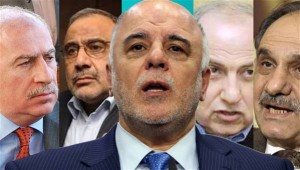
On 8 September 2014, the Iraqi Council of Representatives (Parliament) approved the document that establishes the basis for political agreement among the diverse groups in Iraq, and the plans and goals of the new government. The document is divided into twenty points which touch on number of key issues, many of which were the subject of civil protests in the Sunni governorates, and which address ongoing problems between the central and the KRG governments. Yet despite identifying many worthy objectives, the document provides only general solutions to current problems, and gives very little in the way of concrete information as to just how these solutions are to be implemented and realized. Additionally, the time allocated to deal with the issues raised seems far too short. Such unrealistic goals breed disappointment and resentment when they are not met, and this could undermine the positive steps Iraq is now taking. For instance, the issue of Kirkuk and its disputed areas, a problem that Iraqi politicians have failed to solve for more than 11 years, was set to be solved (according to the constitution) within 12 months — and by the very same politicians who couldn’t solve it in the past! Other issues, like the reform of the Iraqi army and the integration of fighters and militias from various tribes — who are now fighting side by side with the Iraqi government against Daaesh — have also been burdened with unreasonable expectations. The new government’s plan is to achieve complete integration of all troops into an official Iraqi army within 6 months. Similar timelines were also set to solve the problem De-Ba’athification, and for a new amnesty law.
The new prime minister has something to prove with this document — in effect, he is saying: I have the political will to solve these/our problems. And indeed, his will seems strong. However a strong will is not the same as viable and workable answers to the complicated problems Iraq faces. Simply to say ‘I can solve everything according to the Iraqi constitution’ is little more than empty rhetoric. The major problems mentioned above are already addressed in the constitution, and to solve them requires a new amendment to the current constitution, and this in turn requires a long process of negotiation, and agreement on a new vision of Iraq. These are big changes and demand a careful and deliberate reorientation of Iraqi identity, one which recognizes and respects the profound diversity of the country, yet at the same time transcends differences to create a unified Iraq.
The process of selecting the new government occurred in much the same way as the one Maliki formed in 2010. Political parties still think and act in the interest of their sects and parties: Sunni, Shia and Kurd. The government is only a mixture of these sects, and has not yet set out how it will integrate them and their interests by identifying goals and objectives common to all Iraqis. The ministry of defense; the ministry of interior and other ministries are still not defined, and will be managed by Al-Abadi, just as they were by Maliki in 2010. And, as in 2010, the presidency (that is, the Iraqi president and his deputies) will continue to have very limited powers, with one difference: this time the new president, Mr Massum, will have three deputies instead of two — Maliki , Alawi and Nujaifi — and over the past 4 years, these three have shown that they have very different opinions. Their entrenched disagreements and, at times, petty infighting, seem unlikely simply to disappear within the structure of this new government.
Important issues like water, women’s rights, workers rights, the protection of human rights defenders and journalists, and other civil freedoms are still not on the radar of the political parties, and problems related to these issues will continue to be an arena in which civil society is the real player. One important point addressed in the new government’s political agenda is the need for new laws relating to freedom of expression. Unfortunately, this focus may pose problems rather than offer solutions. Previous experience has shown that new laws on freedom of expression often led to greater restrictions and didn’t address older laws which at times conflicted with new ones.
Given all this, there is still good news and reason for hope. These can be divided in two: first, all Iraqi political parties involved in the political process have an interest in this government succeeding; and second, there is regional and international support for the new government. Still, nothing is secure, and the first point will depend on the performance of this government, and its ability to implement the fragile political agreement it has laid out. The second will depend on whether the new foreign minister, Al-Jafari, will be able to reconstruct relations of trust with regional powers like Iran, Turkey and Arab countries, as well as with the international powers like the US and Europe.

